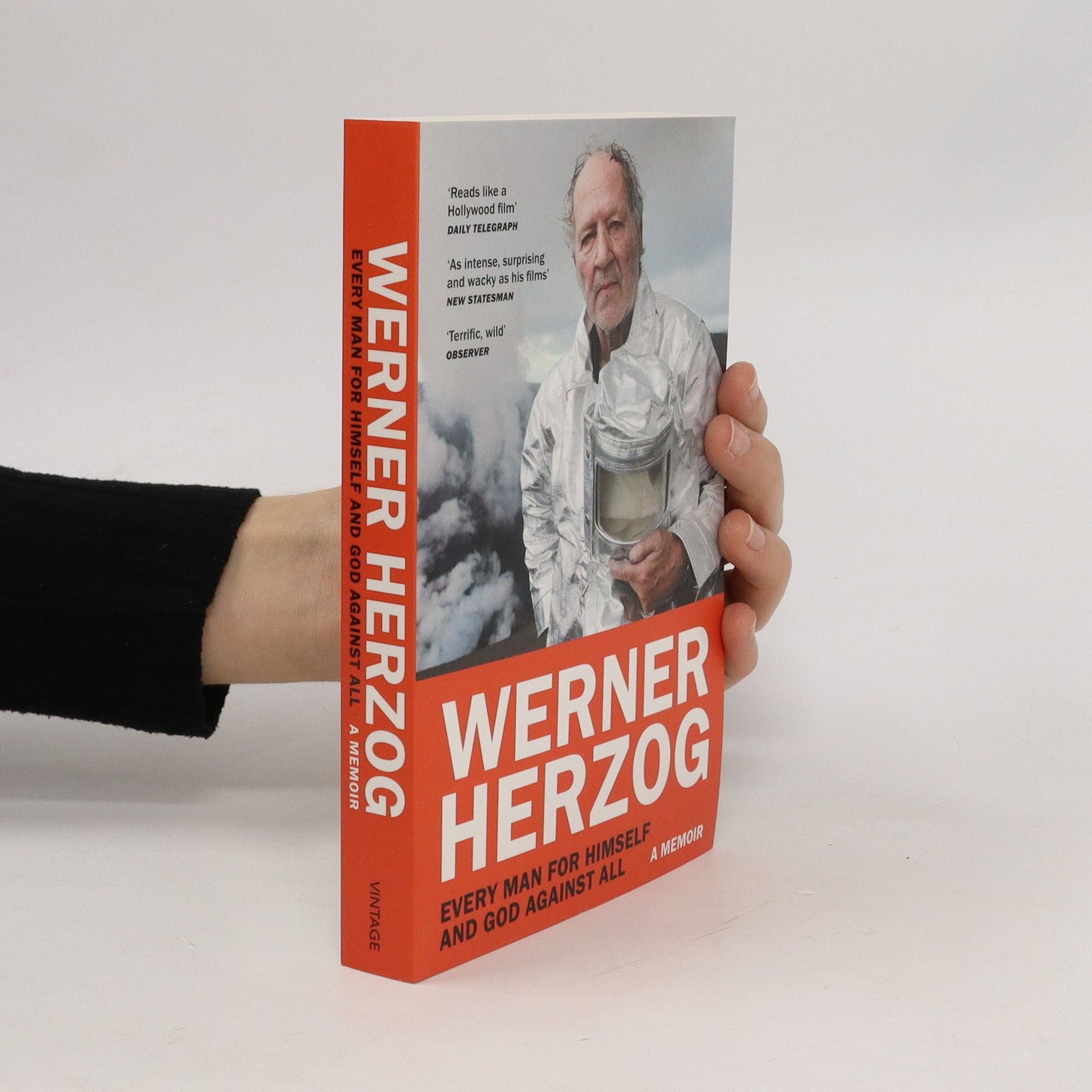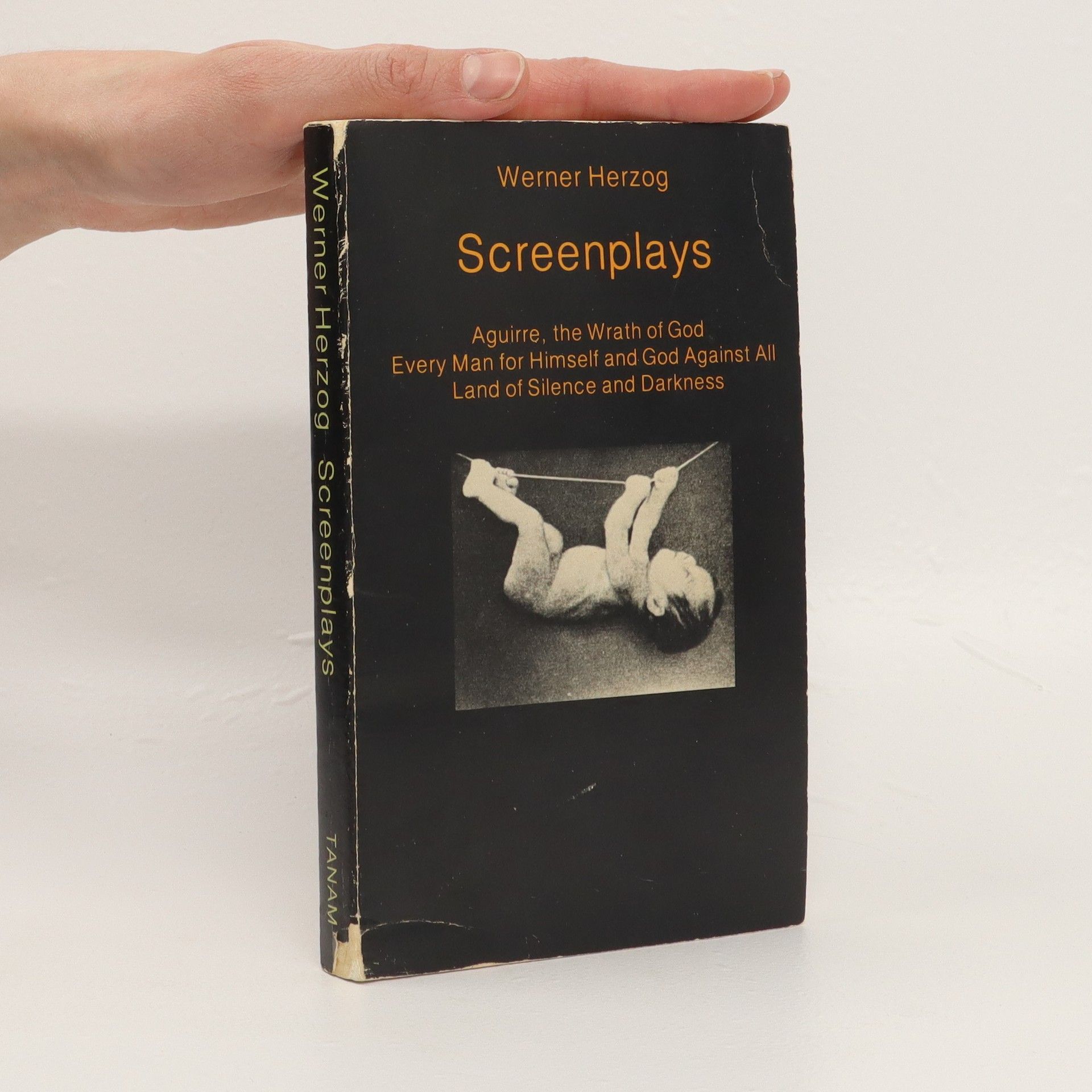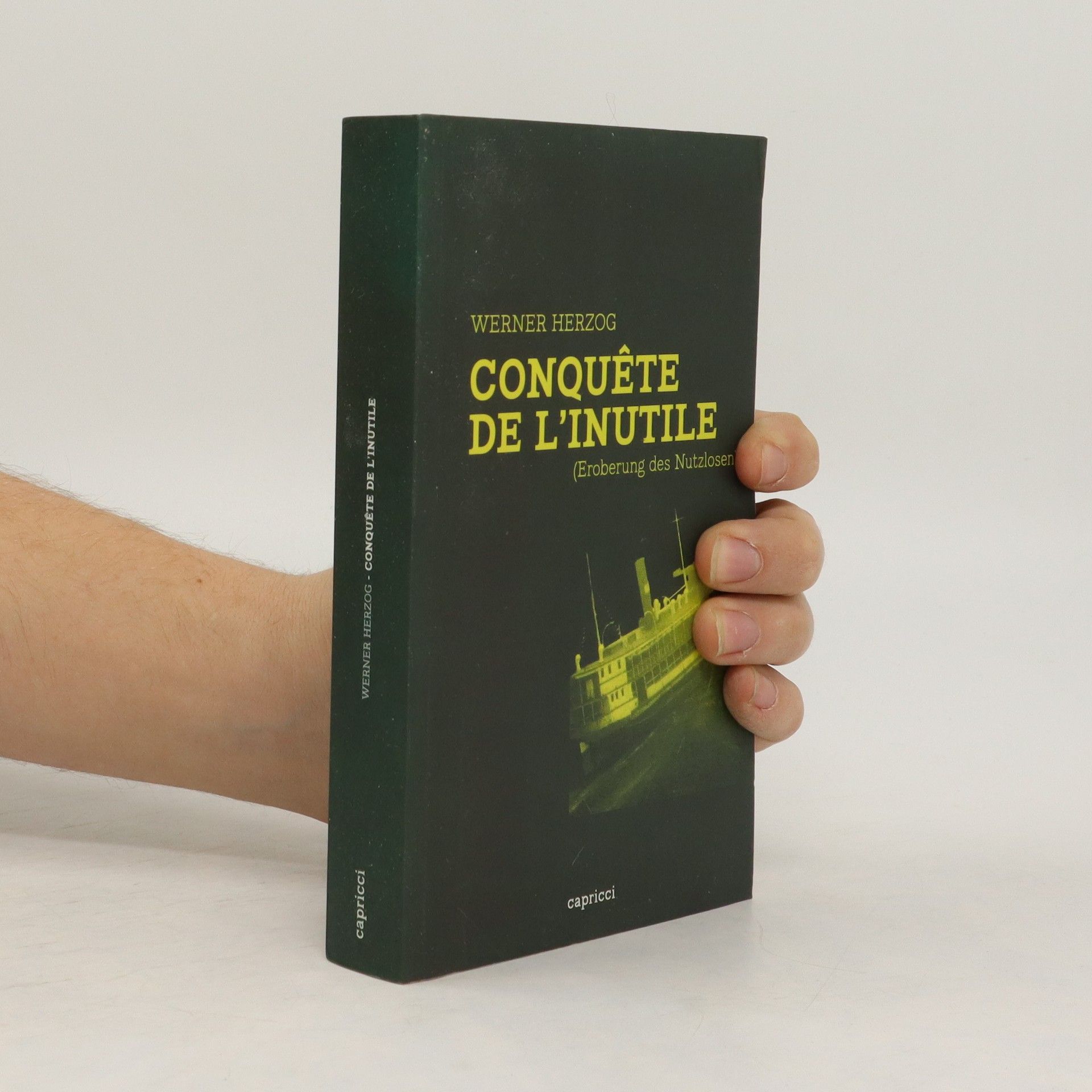A la fois journal de tournage du film Fitzcarraldo et réflexion sur l'art cinématographique, cet essai de W. Herzog décrit des évènements intérieurs, des pensées et des catastrophes inventées par un esprit empli de poésie. Il accompagne la rétrospective consacrée au cinéaste, présentée au Centre Pompidou jusqu'en mars 2009.
Werner Herzog Livres
Werner Herzog est un cinéaste dont les œuvres explorent souvent le domaine des rêves impossibles et des talents singuliers. Associé au mouvement du Nouveau Cinéma Allemand, ses films se caractérisent par une exploration distinctive de la condition humaine. Herzog examine les frontières de l'ambition et de l'obsession, souvent dans des paysages inhospitaliers. Son approche cinématographique met au défi le spectateur de contempler la valeur de l'effort face à des obstacles insurmontables.







A Guide for the Perplexed
- 592pages
- 21 heures de lecture
'One of the best things published about cinema.' Sight & Sound Herzog was once hailed by Francois Truffaut as the most important director alive. Famous for his frequent collaborations with mercurial actor Klaus Kinski - including the epics Aguirre, the Wrath of God and Fitzcarraldo, and the terrifying Nosferatu - and more recently with documentaries such as Grizzly Man, Cave of Forgotten Dreams and Into the Abyss, Herzog has built a body of work that is one of the most vital in post-war German cinema. Here, he reflects on his legendary and inspiring career.
Werner Herzog is the undisputed master of extreme cinema: building an opera house in the middle of the jungle; walking from Munich to Paris in the dead of winter; descending into an active volcano; living in the wilderness among grizzly bears - he has always been intrigued by the extremes of human experience. From his early movies to his later documentaries, he has made a career out of exploring the boundaries of human endurance: what we are capable of in exceptional circumstances and what these situations reveal about who we really are. But these are not just great cinematic themes. During the making of his films, Herzog pushed himself and others to the limits, often putting himself in life-threatening situations. As a child in rural Bavaria, a single loaf of bread had to last his family all week. The hunger and deprivation he experienced during his early years perhaps explain his fascination with the limits of physical endurance.All his life, Herzog would embrace risk and danger, constantly looking for challenges and adventures. Filled to the brim with memorable stories and poignant observations, Every Man for Himself and God against All unveils the influences and ideas that drive his creativity and have shaped his unique view of the world. This book tells, for the first time, the story of his extraordinary and fascinating life.
Werner Herzog
- 208pages
- 8 heures de lecture
Interviews with the director of Signs of Life; Aguirre, the Wrath of God to Grizzly Man; and Cave of Forgotten Dreams
Werner Herzog, a revered filmmaker, shares the extraordinary story of Hiroo Onoda, a Japanese soldier who defended a small Philippine island for twenty-nine years after World War II ended. In 1997, while in Tokyo to direct an opera, Herzog expressed a desire to meet Onoda, known for his quixotic defense of the island unaware that the war was over. Their hours-long conversation unraveled Onoda's remarkable journey. At the end of 1944, with Japanese troops withdrawing from Lubang Island, Lieutenant Onoda received orders to hold the island until the Imperial army's return, using guerilla tactics and never taking his own life. He retreated into the jungle, embarking on a campaign that turned weeks into months, months into years, and ultimately decades. Onoda adhered to his orders, surviving first with fellow soldiers and then alone, becoming one with the jungle. Time seemed to dissolve as he continued his mission. In this work, Herzog immortalizes Onoda's absurd yet epic struggle, blending documentary, poetry, and dreamlike narrative. The result is akin to a modern-day Robinson Crusoe, reflecting on the purpose and meaning we assign to our lives.
Retelling of Bram Stoker's Dracula based on the screenplay of the 1979 German film Nosferatu.
The screenplay presents an epic dramatization of Hernán Cortes' conquest of the Aztec empire in 1521, showcasing Werner Herzog's unique storytelling style. Although it has remained unfilmed for over thirty years, readers can now explore this ambitious narrative that delves into themes of power, culture, and the clash of civilizations. Herzog's vision offers a captivating glimpse into a pivotal moment in history, bringing to life the complexities of conquest and its lasting impact.
Každý za sebe a Bůh proti všem
- 308pages
- 11 heures de lecture
Paměti Wernera Herzoga líčí v 36 krátkých pasážích scény a obrazy z neuvěřitelně bohatého autorova života, doplněné jeho krátkými úvahami. Zachycují život v rozpětí jednoho století, který by se nevešel ani do jednoho z jeho slavných filmů. Mladý, věčně hladový Herzog, s nímž matka uprchla z rozbombardovaného Mnichova do chudičké vsi v Alpách, vyroste v mladíka toulajícího se osaměle světem, na něhož záhy číhá v nejzazších končinách Egypta v horečkách smrt. Je to nadšenec a ctižádostí poháněný individualista, který uprostřed džungle tiše rozmlouvá s rozběsněným Klausem Kinským a rozpláče se u smrtelného lože přítele Bruce Chatwina. Ať už mluví o situacích během natáčení, jež občas ohrožují i životy ostatních, nebo o svém vztahu s Kinským, vždy jsou ve hře riziko a silné emoce. Tato kniha plná nespoutané touhy po životě a údivu nad naším nádherným světem je skutečnou literární událostí.


